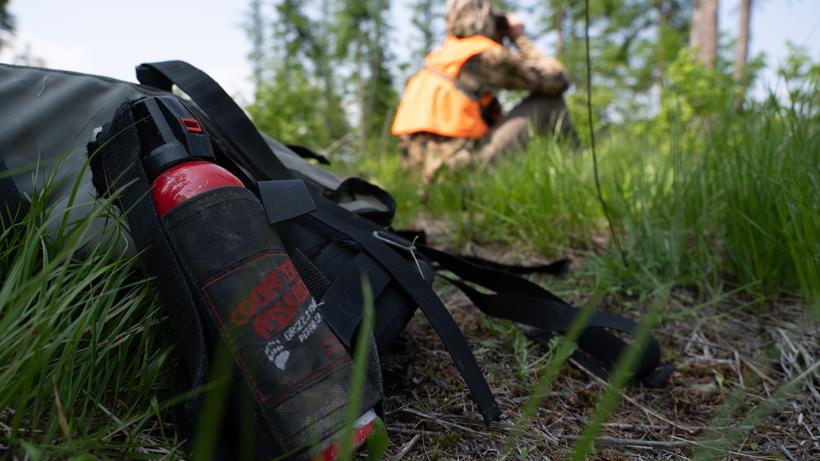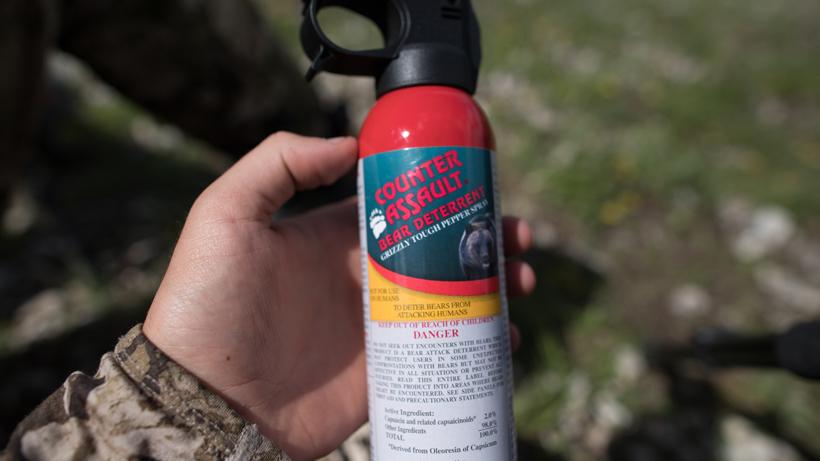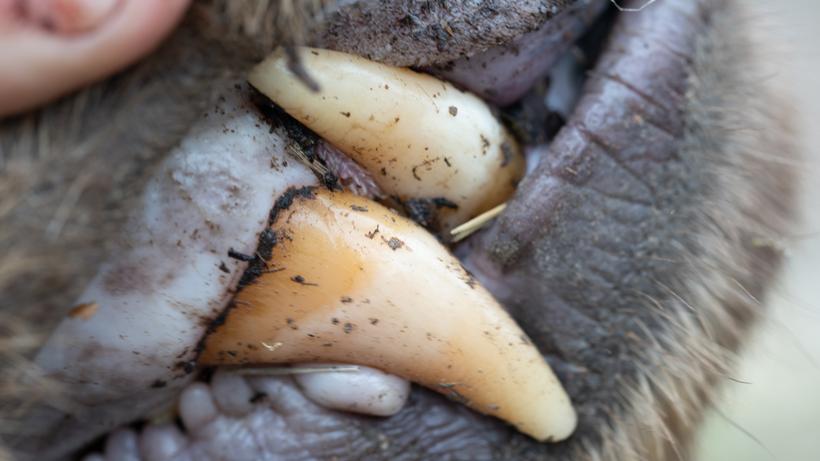






When it comes to hunting, there is one thing that we all want and that is to come home safely after enjoying our time in the mountains. Most of the time we can limit our risk by making decisions to do things less dangerously. Not crossing creeks that are too deep, being careful near cliff faces and not crossing steep scree fields are just a few examples of doing things to reduce our risk. Yet, no matter how safe we try to be, there are still some risks that are virtually unavoidable, especially when in the backcountry. One of these risks that has been publicized more and moreover the last few years is the dangers of bears, specifically grizzly bears in the lower 48. Each year, in Idaho, Wyoming and/or Montana, there are a handful of grizzly attacks as well as reports of plenty of other bears harassing campgrounds, hikers and livestock. Risks involving bears with regard to our bodies, equipment and experience are important to understand. Bears — specifically grizzly bears — are apex predators that we do not need to necessarily fear, but definitely need to respect. Making appropriate changes when it comes to hiking, hunting, camping and meat care in grizzly country can keep encounters to a minimum and reduce our risk, ensuring we come home to our families even after hunting in the densest bear country out there.
When it comes to hiking in bear country for non-hunting purposes, the most important thing you can do is be loud on the trail. Typically, hiking with a few people and talking back and forth is advised. In most cases, bears — whether it’s black bears or grizzly bears — will move away from the sounds and scents of humans in their vicinity as long as they are not startled. Carrying bear spray or a firearm as a backup is always a good idea. Your ultimate goal is to prevent yourself from sneaking up on a bear or bears without them knowing that you are coming. If you can give them the chance to know you are there, most of the time they will move away from you. When it comes to hiking while hunting, we often don’t want to talk loud on the way into a spot for fear of spooking our intended game. In this case, being careful to keep bear spray in hand and a headlamp scanning around you will be your best bet. If you see a bear, then talk to it and alert it of your presence in a normal voice.
When it comes to camping, the most important thing is to distance yourself from your cook station, food and other scented supplies like toothpaste, cooking fuel, lotions, etc. If you can store these supplies in your vehicle that would be best; however, if you cannot then a bear proof box or cooler is another option. If you are multiple miles in the backcountry and need to store supplies, then you should get them in a sack — preferably plastic tied shut so that there is less scent. Then, suspend the sack at least 10’ off the ground and at least 4’ from the nearest vertical tree. I have seen people camping and only get the sack 10’ off the ground, but have it still leaning against the tree, which is not sufficient. Bears can climb up trees very well, especially when motivated by food or interesting scents. Your goal when camping is to not attract curious or hungry bears to your area. As a backup plan, it is also advised that you have your bear spray and a flashlight readily available inside your tent — just in case you have an unwanted visitor at night.
Another issue that is not often talked about is what happens when you are in a high predator density area and you have harvested an animal. Ultimately, your first goal is to get the meat off of the mountain and back to a butcher stop or storage unit as soon as possible. This might involve an overnight butchering job instead and carefully hanging quarters out of reach. If you have to go into the carcass the next day to either start butchering it or to retrieve the last of the meat, make sure to use extreme caution upon reentering the area. As you approach the spot where your harvested animal was, make loud noises and have bear spray readily available. Carefully examine the carcass once you get there for signs of predators eating the animal. If there is sign of the animal being consumed, then you should be on the lookout — especially for a bear in the nearby area. Ultimately, you want to butcher and get the meat away from the area as soon as possible in order to reduce any risk.
Most of the time, bears are naturally afraid or cautious of humans and do not think of us as prey. There are rare situational occasions when a bear is defending cubs, food or its space that will cause them to act more aggressively and even attack. Your job if you encounter a bear is to let it know that you are there and human so it has a chance to get away from you. To do this, you can talk to the bear in normal tones — not screaming or using a higher pitch. It is often advised to raise your arms or move to higher ground to look larger. It’s also a good idea to try to move in the direction where your wind is moving towards the bear so they can smell you. If the bear charges you, then discharge your pepper spray or firearm to deter them from coming closer. Never drop your pack because it can protect your back in the case of an attack. According to the National Park Service, in the case where a grizzly bear attacks you, then you should lay on your stomach with sprawled legs and your hands clasped behind your neck. Remain as still as possible until the bear leaves since fighting back usually tend to intensify their attack. If the grizzly bear attack persists too long, then fight back with all your might, hitting the bear in the face. With a black bear, it is suggested that you try to escape and/or fight back using objects to hit the bear in its face and muzzle. Overall, attacks are quite rare; however, there are some that happen every year so identifying the bear and moving away or finding an alternative route is always suggested.
Ultimately, hunting in the backcountry of many states has its own inherent dangers and some of these are unavoidable. Understanding all of these dangers, including bear safety, is a super important part of making sure we come off the mountains in one piece and reduce our encounters with predators. Identifying and preparing for as many risks as we can make us a better hunter and more confident in our outdoor skills. Before heading into bear country be sure to have bear spray and let people know where you are going. The most important thing you can do on any backcountry hunt is to make smart and safe decisions wherever you are hunting.